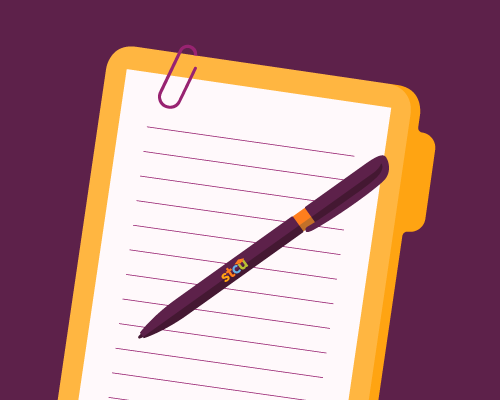First published January 12, 2017.
Updated January 7, 2019.
How to organize your finances and simplify your life.
Have you ever been late paying a bill because it got lost in a pile of paper? Could your next of kin make sense of your finances if something happened to you?
Organizing your finances and important documents helps ensure you'll be prepared for whatever life throws your way. Here are tips for getting organized:
Manage your bills.
Whether you're a paper person or you like to manage things electronically, gather all your bill-paying materials in one place. Organize your bills according to when they're due. Then file bills according to whether they're outstanding or paid.
You can simplify this system by using your financial institution's online banking and bill-paying program. Sign up for electronic statements and take advantage of direct deposit and payroll deduction. You'll have less paper to file, access to years of account history, and less need to write checks.
Secure your tax documentation.
Throughout the year, place records of donations, medical expenses, local fees and taxes, education expenses, and other information in one spot. Add your W-2s and tax documents when they arrive. That way, you'll be ready for income tax season.
Safeguard your records.
A credit union or bank vault is a secure place to keep key documents like original copies of your birth certificate, as well as contracts and leases, professional licenses, passports, and titles and deeds. Include a copy of your household inventory, and your will. Not interested in a safe-deposit box? Invest in a fireproof safe.
"A financial notebook is a personal map to your household finances," says Sherry Wallis, an STCU member and financial educator.
Start a financial notebook.
If someone became seriously ill or died, would your loved ones know how to handle your finances? Putting together a financial notebook can help. It should contain:
- Personal records, such as birth certificates.
- The location of important documents.
- Insurance and health records.
- Information about your loans and financial accounts.
- Your latest tax forms.
- Your inventory of personal property.
- A list of your real estate holdings, vehicles, and investments.
- Retirement planning documents.
- All your important estate planning documents, such as a copy of your will, advance directives, and powers of attorney.
Inventory your personal property.
Make a comprehensive list (with photos) to document everything in each room of your home in case of disaster or burglary. This list should include things like furniture, jewelry, electronics, appliances, and tools. Record model numbers and serial numbers.
Communicate with your family.
Once you've gotten organized, let key people in on your system. And be sure to tell those you trust where to find your financial notebook. It'll give them peace of mind.



